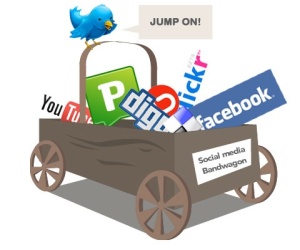 A few weeks ago a detective knocked on my door. They thought a neighbour had been badly attacked on a street late at night but couldn’t identify him.
A few weeks ago a detective knocked on my door. They thought a neighbour had been badly attacked on a street late at night but couldn’t identify him.
He was in a coma, his family abroad and his wallet gone – they had a clue he lived next door but had no pictures with which to identify him and no way to contact his next of kin.
Within minutes of logging on to his Facebook page another woman in his block of flats had established contact with the family and provided a library of photographs the detective could use. Except, despite our encouragement and the exceptional circumstances, he wouldn’t.
Raising his eyebrows, as if to say ‘silly old me’ he told us that he wasn’t very good with computers and had never really ‘got round to’ Facebook. So, he smiled hopelessly, if it was all alright with us, he would wait for the girlfriend to arrive at Gatwick.
My neighbour and I were astounded. There was a man was lying in a hospital bed unconscious, a family half way around the world worried sick and no proof positive of his identity.
And on a computer in the next room was a library of photos showing him from every possible angle, a list of contacts at our fingertips and even, conceivably, information about his last movements.
As a journalist and regular facebook and twitter user all I know the power these social networks can provide. It just seemed like such a waste.
So it as a relief that it has been announced that police officers will finally receive training on social networking sites.
Considering Facebook launched in Februrary 2004 (Twitter in 2006) it is outrageous this training has taken over six-year become part of standard training procedure.
As a journalist, feigning ignorance wouldn’t get you very far with your news editor if a rival scooped you with a story from a social network – and why should this be any different in other professions that rely on information?
Officers will now be taught about evidence-gathering on these sites as part of detectives training at the National Policing Improvement Agency. 3,500 detectives pass through the agency’s training courses each year so this is a good start, but in all likelihood my polite but social-network-ly inept detective is likely remain just as bemused as ever.


